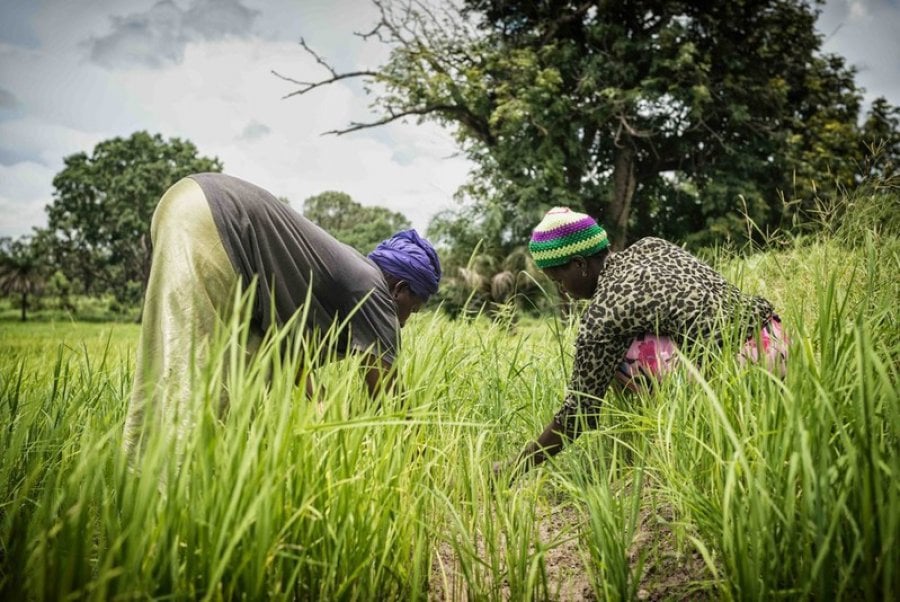Improving health and wellbeing in West Africa under environmental change
21 January 2020 London School of Hygiene & Tropical Medicine London School of Hygiene & Tropical Medicine https://lshtm.ac.uk/themes/custom/lshtm/images/lshtm-logo-black.png
West Africa is a climate change hotspot. More than 75% of the population is affected as often as once every two years by natural phenomena such as floods or droughts that are increasing in their frequency and severity directly because of climate change.
However, insufficient research and a lack of urgency in the response is putting lives and livelihoods in the region at risk. Understanding the impacts of current and projected environmental change on health is vital. For the first time, researchers from across West Africa will come together to present the latest evidence at the inaugural Planetary Health Conference 2020.
Taking place in Banjul, The Gambia, over Wednesday 22 January – Friday 24 January, the event will be hosted by MRC Unit The Gambia at the London School of Hygiene & Tropical Medicine, the London School of Hygiene & Tropical Medicine Centre on Climate Change & Planetary Health, in partnership with the Government of The Gambia and the University of The Gambia.
The event will unite scientists and policy makers, to ensure that the actions that are so critically needed, can be developed and delivered to safeguard health in a changing world. Another key aspect of the conference is the mentorship and training of young scientists – the development of a new cadre of planetary health experts in West Africa will be crucial for the future.
Professor Martin Antonio from the MRC Unit The Gambia at LSHTM and conference co-chair, said: “It is clear that ongoing environmental changes, including higher temperatures, less predictable rain fall and rising sea levels will have significant impacts on global health. Much of the conversation concerns how we can protect people in the future, but in West Africa, these effects are taking place now. Increased desertification, the degradation of natural resources and food insecurity is having an adverse effect on the economy and quality of life. We must act now.”
West Africa has been identified by the United Nations Intergovernmental Panel on Climate Change as a climate-change hotspot, with the effects likely to have multiple impacts on health through reduced crop yields, greater daytime heat, and changing spread of infectious disease.
In The Gambia, temperatures have been rising since the 1940s by around 0.5 degrees C per decade, and the current mean temperature of 28 degrees is projected to increase by 3-4.5 degrees C by 2100.
Simultaneously, annual rainfall in The Gambia has decreased by around 30% from 1950-2000. The rainy season has decreased in length and become much more variable, leading to flash floods as well as crop failures. More than 98% of The Gambia’s agricultural system is rain-fed, making the country extremely vulnerable to the increasing unpredictability of rainfall.
Other impacts of climate change in West Africa include increased exposure to extreme heat, as well as deteriorating air quality and changing prevalence of infectious diseases.
Professor Alan Dangour, Director of LSHTM’s Centre on Climate Change & Planetary Health and conference co-chair, said: “Countries in West Africa are already experiencing some of the extremely serious impacts that climate change is having on health. Holding the conference in The Gambia enables us to showcase local evidence, support an emerging research community and engage with local policy makers and other stakeholders. We hope that the conference will highlight the urgent actions that are required in West Africa to safeguard the health of people and the planet.”
The full conference programme and list of speakers is available here. The event will be livestreamed. Join the conversation by following #PHConference2020.
Our postgraduate taught courses provide health practitioners, clinicians, policy-makers, scientists and recent graduates with a world-class qualification in public and global health.
If you are coming to LSHTM to study a distance learning programme (PG Cert, PG Dip, MSc or individual modules) starting in 2024, you may be eligible for a 5% discount on your tuition fees.
These fee reduction schemes are available for a limited time only.